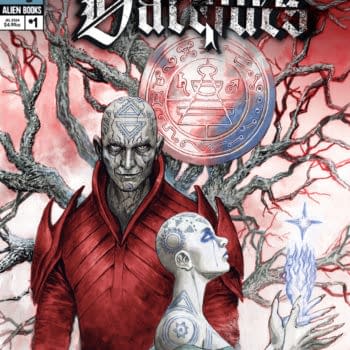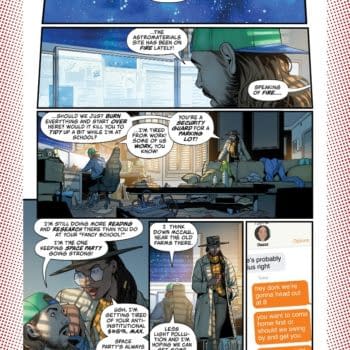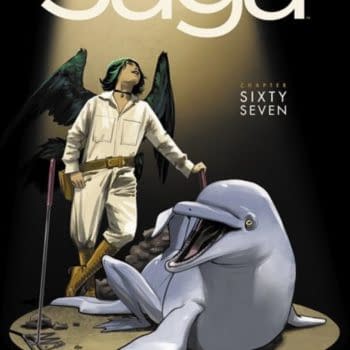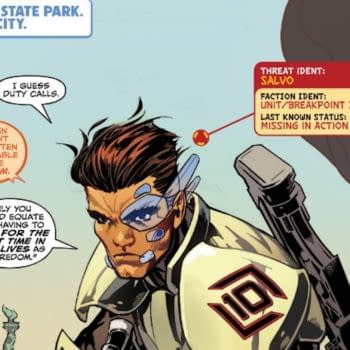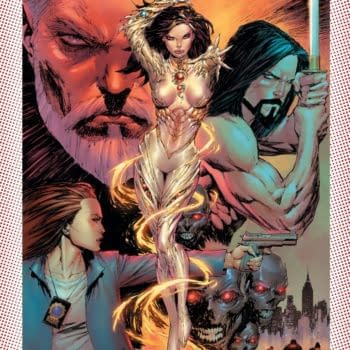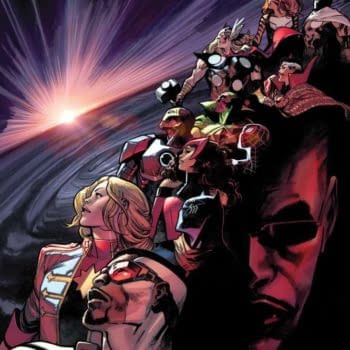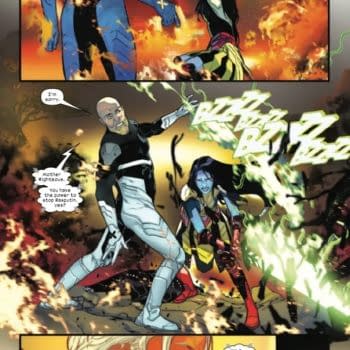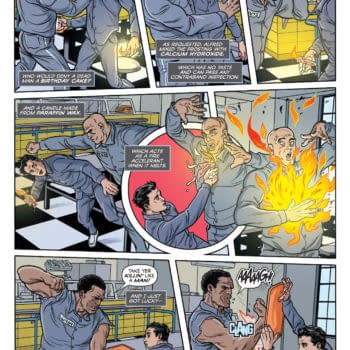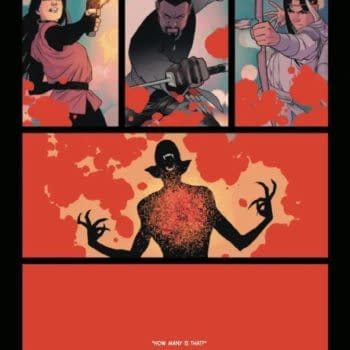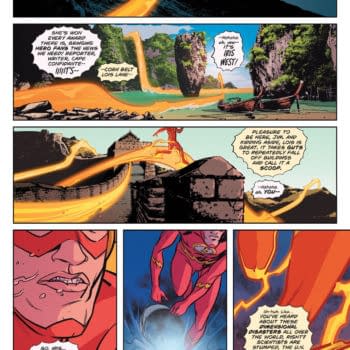Posted in: Comics | Tagged: Comics, entertainment, senyc, transgender
Discussing Transgender Themes At Special Edition: NYC With Marjorie Liu, Kristen Enos, And Marguerite Bennett
Madeline Ricchiuto wrote for Bleeding Cool from Special Edition: NYC last weekend, where she attended the Secret Identities: Transgender Themes In Comics panel:
The panelists for this edition of Secret Identities were Charles Battersby, Marjorie Liu, Kristen Enos, and Marguerite Bennett, discussing transgender themes in comics as well as gender change with characters who are not necessarily trans.
Angela: Asgard's Assassin by Kieron Gillen and Marguerite Bennett brings the continuity from Neil Gaiman's Image book into the Marvel U. Most importantly, that continuity relies on a vision of Heaven that is populated mostly by women. In Asgard's Assassin, there will be a side-story at the end of each issue about Sera, one of Angela's companions. Sera, who is rescued by Angela, provides a foil for Angela's rigid dedication. Sera, while being a trans character, is not revealed to be trans until the third issue of Asgard's Assassin.
Kristen Enos' Web of Lives is a project designed to follow the lives of several women. Currently the book follows two young women. One protagonist being Casey who is openly gay but faces censure in Junior High for being gay and joins a queer support group with the transgender George. Liu describes it as "cyber punk".
Marjorie Liu has written X-23 on a few occasions and describes her as "more than just a female clone of Wolverine" as she is raised as a weapon, not as a person, and the X-Men treat her similarly. As a character, most of her roles tend to deny her personhood, but she has also been subjected to sexual violence for being female. So Liu's version of X-23 tells the story of a character who is searching for identity. While Liu did not describe X-23 as trans, she did say "she has been assigned a designation at birth but she can be different than that. She can be more than that."
In terms of gender roles, Angela takes place in a world where warriors must be women, though Bennett and Gillen's work is an opportunity to discuss the limitations of that society.
Much like X-23, Ultimate Spider-Woman is a cross-gendered clone of a male hero. Ultimate Spider-Woman spent 16 years as Peter Parker, and is essentially Peter Parker trapped in a woman's body, though that is not a plot line Marvel has ever taken with Jessica Drew in that universe. They never allowed for her to transition back to male using more "typical" means.
Doctor Fate and Thor, being that their consciousnesses are stored in an item, have "changed gender" when their items are picked up by a person of the opposite gender. She-zow is another case of a heroic persona trapped in an item. Enos pointed out Supergirl and Batgirl as being attempts to give the same powers as an existing hero to a woman and these "magical item" heroes are somewhat similar. That the execution depends entirely on the creative team. Liu brought up the language difference "Thor becoming a woman is 'hot and sexy' but Peter Parker becoming a woman is not."
She-zow, much as the publisher vehemently refuses to refer to the character as trans, has been adopted as a trans hero by the fanbase. Battersby asked the panelists "could this be an issue where the author wants to discuss trans issues but the editor or publisher refuses to acknowledge it?" Bennett brought up the fact that Marvel refuses to refer to Sera as trans, that they strike it out of any interviews or descriptions. Because the publisher is "cagey" about the term.
Fantastic Four and Future Foundation includes Tong, an alien character who is trans, and acknowledged as such, which implies that the skittishness is solely about humans. There is a Batgirl storyline that includes a potentially transgender villain who impersonates Batgirl. The intention was not to portray a trans character, however, the reception of the story took the plot as discussing trans themes. A Lois Lane story by Bennett was taken similarly.
Most of these examples are MTF trans characters. Bennett believes that this is because transgender issues get lumped into "women's issues" because of an us-vs-them mentality. Liu also brought up the white-straight-male demographic while suggesting that the thought of a man becoming a woman is more othering and subversive for that audience while women are expected to identify with men anyway so FTM transitions are viewed as unnecessary stories. Battersby questioned if FTM stories are always viewed as empowering to women, which received a response from the panelists that suggested this was because of the androcentrism of our current society. From the perspective of marketing, Bennett suggested that this is because publishers would prefer to keep a woman as a sex object while still giving her 'male' qualities like being badass.
"Is there any way where comics are a better medium for telling trans stories?" Enos suggested that the lack of casting issues allow for the story to be more authentic. That the story would not be distracted by casting complications.
The panel then turned to Q&A from the audience:
Q: In the manga One Piece, there is an island of transvestites. My problem with it is that this island is played off mostly as a joke. One of the heroes is a womanizer who spends his time on the island running from its inhabitants. Is it okay to have representation even if it isn't great or should we wait for perfect representation?
"While the Japanese are more accepting of the queer community, but it depends on who is the target audience. I use the term homophobia for comedy and that is used a lot. It depends on the manga, if its targeted toward the queer community or not." Enos responded.
"There was a point years ago where any representation was great, but we are long past accepting that one-note joke," was Battersby's answer.
"I'm getting sick of bad representation. If its done sincerely I appreciate the attempt, but I still get really grudgey" was Liu's response. Bennett agreed. They both went on to suggest that creators working with similar subjects should be willing to be taught.
Q: What are your opinions on characters who are non-binary or born intersex? In terms of visibility and representation?
"We need more" was the universal answer. Liu brought up the fact that her students were wary of making a mistake in portraying stories of trans characters or people of color, and that this is why we don't see as much representation, which was a perfect note to end the panel on.







